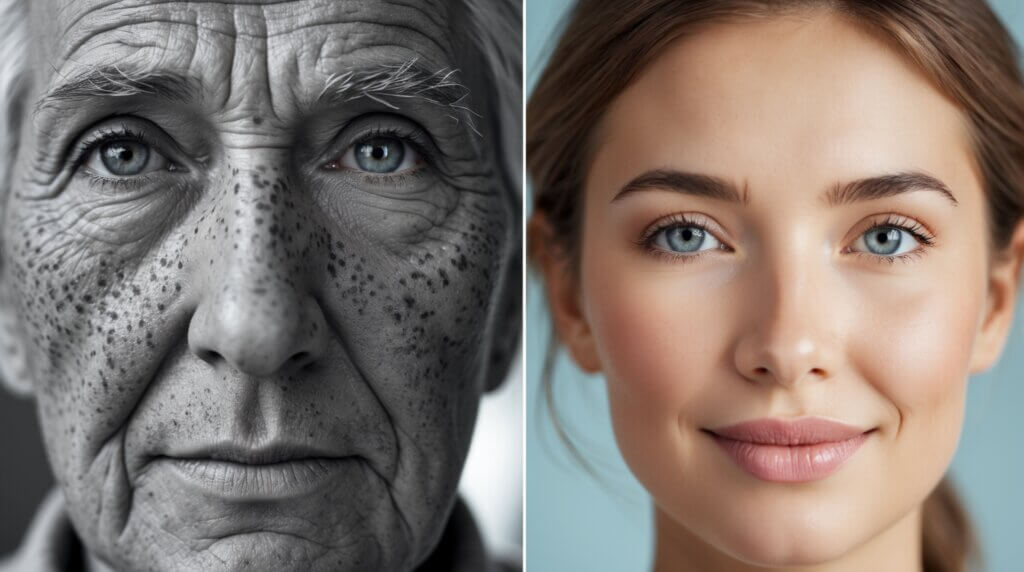What Is Anti-aging?
Anti-aging refers to a broad range of strategies, treatments, and products aimed at slowing down or reversing the aging process, particularly in terms of physical appearance and health. It covers various practices, from skincare routines to dietary habits and medical interventions. The ultimate goal of anti-aging is to maintain a youthful appearance and enhance overall well-being.
The Importance of Anti-aging
As we age, our skin loses elasticity, and our bodies undergo various changes that can affect our appearance and health. The anti-aging movement has gained significant traction in recent years, especially among individuals seeking to preserve their youthfulness. In Massachusetts, where beauty and wellness trends are closely followed, understanding anti-aging can empower locals to make informed choices about their health and beauty regimens.
Fundamental Aspects of Anti-aging
- Skincare Products: These include moisturizers, serums, and treatments containing active ingredients like retinol, hyaluronic acid, and antioxidants.
- Healthy Lifestyle Choices: Regular exercise, a balanced diet rich in vitamins and minerals, and adequate hydration play a crucial role in anti-aging.
- Medical Treatments: Procedures such as Botox, fillers, and laser treatments are popular methods for reducing signs of aging.
- Supplements: Many individuals turn to dietary supplements that claim to promote skin health and overall vitality.
Practical Applications of Anti-aging
Incorporating anti-aging practices into your daily routine can be straightforward. Here are some real-world examples:
- Daily Skincare Routine: Consider using a facial cleanser, followed by a serum with hyaluronic acid and a moisturizer with SPF to protect against sun damage.
- Nutritious Diet: Foods rich in antioxidants, like berries, nuts, and green leafy vegetables, can help fight oxidative stress, which contributes to aging.
- Regular Exercise: Engaging in physical activity at least three times a week can boost circulation and promote a healthy glow.
- Stress Management: Practices such as yoga and meditation can help manage stress, which is a known factor in premature aging.
How to Use Anti-aging Techniques in Daily Life
To effectively integrate anti-aging techniques into your everyday life, consider the following actionable steps:
Get more content like this!
Sign up to receive updates and new terms first hand.
- Start your day with a skincare routine that includes cleansing, moisturizing, and applying sunscreen.
- Incorporate antioxidant-rich foods into your meals. Aim for a colorful plate filled with a variety of fruits and vegetables.
- Set aside time for physical activity—whether it’s yoga, jogging, or a brisk walk—at least three times a week.
- Practice mindfulness and relaxation techniques to reduce stress levels.
Related Concepts in the Anti-aging Sphere
Understanding anti-aging also involves a grasp of related concepts that can enhance your knowledge:
- Skincare Ingredients: Familiarizing yourself with ingredients like retinol, peptides, and antioxidants can help you choose the right products.
- Holistic Wellness: This approach emphasizes the interconnectedness of body, mind, and spirit, and how they contribute to overall health and aging.
- Cosmetic Procedures: Knowledge of available treatments and their effects can help you make informed decisions about your anti-aging journey.
Conclusion: Embracing Anti-aging in Your Life
Anti-aging is not just about looking younger; it’s about feeling good and taking proactive steps to maintain your health and vitality. By implementing some of the techniques discussed, you can enhance your quality of life and embrace the aging process with confidence. Remember, the goal is not to erase age but to age gracefully and healthily.
As you explore the world of anti-aging, think about what works best for you. Whether it’s a new skincare product, a healthy recipe, or a fitness routine, every small step can contribute to a more youthful and vibrant you.

